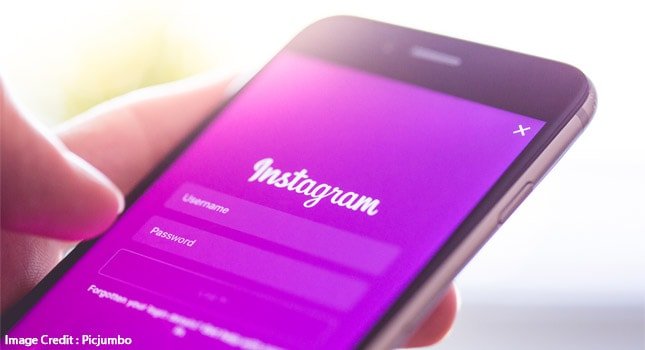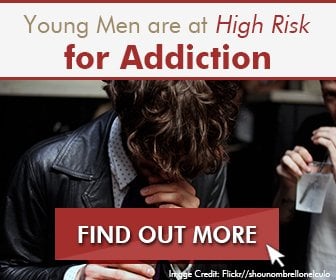A new trend sees drug dealers using social media to connect with young users. Transactions are conducted in coded language, often in plain view of parents and law enforcement. We explore this startling development and consider its effects on young people dealing with addiction.

Sharelines
- A cryptically worded Tinder profile signals those in the know that someone is selling drugs in their area.
- With drug dealers turning to social media to find new clients, teens are at greater risk than ever.
In a startling new trend, teens and young adults are increasingly turning to social media platforms to buy and distribute illegal drugs. This often occurs in coded language right under parents’ noses. Meanwhile, the sprawling, decentralised nature of social media networks makes it difficult for law enforcement to stay ahead of the curve.
In this post, we explore the evolution of online drug dealing and the risks of addiction that it poses to young people.
A Brief History of Online Drug Dealing
Buying and selling illicit drugs online is nothing new, but the ways in which dealers connect with their customers continues to evolve. Dealers have been openly selling drugs on message boards like Craigslist for years. Then in 2011, the infamous Silk Road was launched on the so-called ‘dark web’, an encrypted network that operates as an online black market for drugs.
Silk Road users could browse anonymously without fear of their online activity being tracked. This encouraged the sale of all sorts of illicit activity – from selling illegal drugs to exchanging child pornography. This particular digital marketplace was shut down by the FBI in 2013 when its founder was arrested. But within a month, Silk Road 2.0 was launched by former its administrators. It continued operating for another year before the FBI took it down again.
Silk Road may no longer be in operation, but there are several similar online communities filling the same role. Many have turned out to be much more disturbing and depraved than their predecessor. For law enforcement, shutting down illicit marketplaces like these is an uphill battle. No sooner is one community shut than another springs up to take its place.
However, it is also worth noting that buying drugs on the dark web is still a fringe activity. Many people are not aware of how to access these marketplaces to begin with. And of those who do, the risk of being scammed (or worse) deters many.
This is why the emerging trend of buying and selling drugs on social media is so disturbing. It brings what was formerly an underground activity into a much more public venue.
Social Media Brings Drug Deals into the Open
Of course, social media platforms are nowhere near as secure as anonymous message boards on the dark web. And there have been more than a few almost-comical drug busts where dealers have uploaded pictures of illicit substances including marijuana and MDMA on Facebook. Meanwhile, hashtags like #weed4sale and #pills4sale can lead prospective buyers directly to local dealers.
These inevitably come to the attention of law enforcement officers, and arrests often follow. But for every blatant attempt to sell drugs on social media, there are countless other veiled attempts. Drug dealers and their customers speak in coded language, making it difficult for law enforcement to monitor potential transactions.
And it is not just Facebook, Instagram and other community-based social platforms facilitating illicit deals. Dating apps have also come into play. A cryptically worded Tinder profile signals those in the know that someone is dealing in their area. Instead of swiping right for romantic reasons, users can do so to get their next fix. Meanwhile, gay dating apps like Grindr, Jack’d and Scruff are increasingly being used to sell meth.
Social Media Drug Deals Are a Global Problem
The use of social media to sell drugs openly is not limited to one country or region. There are stories of dealers using social platforms all over the world – from Grindr-facilitated meth deals in Los Angeles to drug rings using Snapchat and Twitter to sell all manner of hard substances in Saudi Arabia.
Authorities in Asia-Pacific have stepped up efforts to disrupt drug dealing over social media. Last August, South Australian police arrested four drug dealers who were dealing on social platforms – all of them independently of one another. Meanwhile, police in New Zealand sent formal letters to members of a Facebook group that was believed to be a front for dealers. The letters told dealers that they were being watched.
Dealers on social media may be easier for law enforcement to catch, but they are also easier for users to find. Earlier this year, Massey University published a study involving 300 frequent drug users in New Zealand. It found that a staggering 73 per cent of respondents had purchased drugs over social media. This is roughly twice the number who used encrypted websites like those on the dark web to buy drugs.
A Serious Cause of Concern for Parents
The transition to social media as a platform for buying and selling drugs is unsettling, to say the least. And it is a cause of concern for parents, many of whom are unaware that drugs are being sold so brazenly on platforms where their children spend much of their time online.
One concerned Australian father was shocked to learn that his son was meeting with drug dealers and discussing hard drugs like LSD and ecstasy with his friends. He says, “I am terrified not only for my own son but the other kids, all these kids are lovely, nice kids — they are normal young people who could easily go down the wrong path.”
Today, it is easier than ever for young people to find and purchase illicit substances. The ease with which these substances can be obtained makes recovery even more challenging. This makes early intervention and the availability of effective addiction treatment programmes all the more important.
If a young man you care about is struggling with drug use and addiction, The Edge can help. Our revolutionary rehab programme engages young men in physical activity and social responsibility – encouraging those in recovery to mentor others struggling with the same issues. With our help, breaking free of addiction is possible, even as dealers operate more brazenly than ever. Contact us today to learn more.





